CONFERENCES
Conferences are especially designed to enhance your curiosity on various medical topics and prepare you for your future practice as: a great doctor.
Explore new ideas. Challenge the future of healthcare.
Explore new ideas. Challenge the future of healthcare.
Explore new ideas. Challenge the future of healthcare.
Explore new ideas. Challenge the future of healthcare.
Explore new ideas. Challenge the future of healthcare.
Explore new ideas. Challenge the future of healthcare.

Held by Prof. Olga Simionescu, MD, PhD, this conference offers a dynamic introduction to dermatology, a specialty that blends medical care, diagnostics and aesthetics. Participants will explore the unique appeal of dermatology as a career, gain practical knowledge of dermoscopy for early cancer detection and take part in interactive training. Combining theory with real case practice, the program is designed to provide both insight into the specialty and essential diagnostic skills that can be applied in everyday clinical settings.
Prof. Olga Simionescu, MD, PhD, is Chief of the 1st Clinic of Dermatology at Colentina Hospital and Professor of Dermatology at “Carol Davila” University of Medicine and Pharmacy, Bucharest. An internationally published researcher and Guest Editor for Biomedicines, she is recognized for her expertise in skin tumors, dermoscopy and surgical dermatology. She is also the founder of Top-Derm Clinics, a leading multidisciplinary practice in Romania.
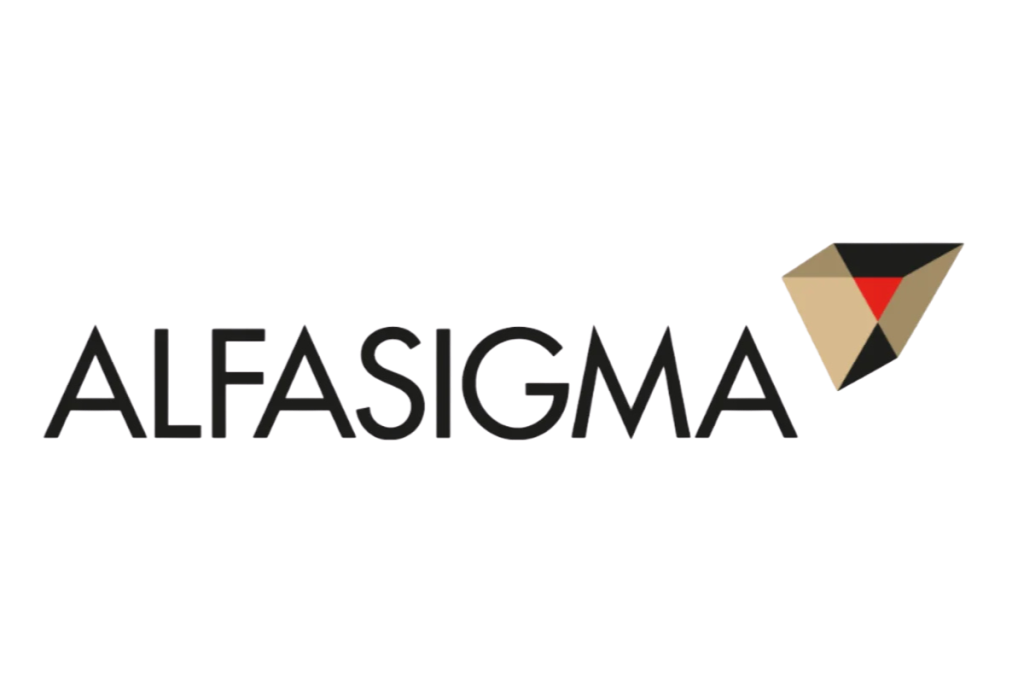
The endothelial glycocalyx is a dynamic, gel-like structure that lines the inner surface of blood vessels and plays a key role in preserving vascular integrity. It regulates permeability, mechanotransduction and nitric oxide (NO) bioavailability, maintaining vascular tone. In chronic venous disease (CVD), sustained venous hypertension and inflammation lead to glycocalyx degradation, disrupting endothelial balance and amplifying the inflammatory cascade that drives disease progression.
Under the guidance of Teodor Hanciu, MD, Medical Director of Alfasigma Romania, this session will explore the therapeutic potential of targeting the endothelial glycocalyx in managing CVD. Treatments such as sulodexide have demonstrated the ability to reduce inflammation, leukocyte adhesion and restore glycocalyx integrity. By protecting the endothelium, such therapies not only alleviate clinical symptoms, like edema, but may also slow disease progression, offering a more comprehensive approach to vascular health.
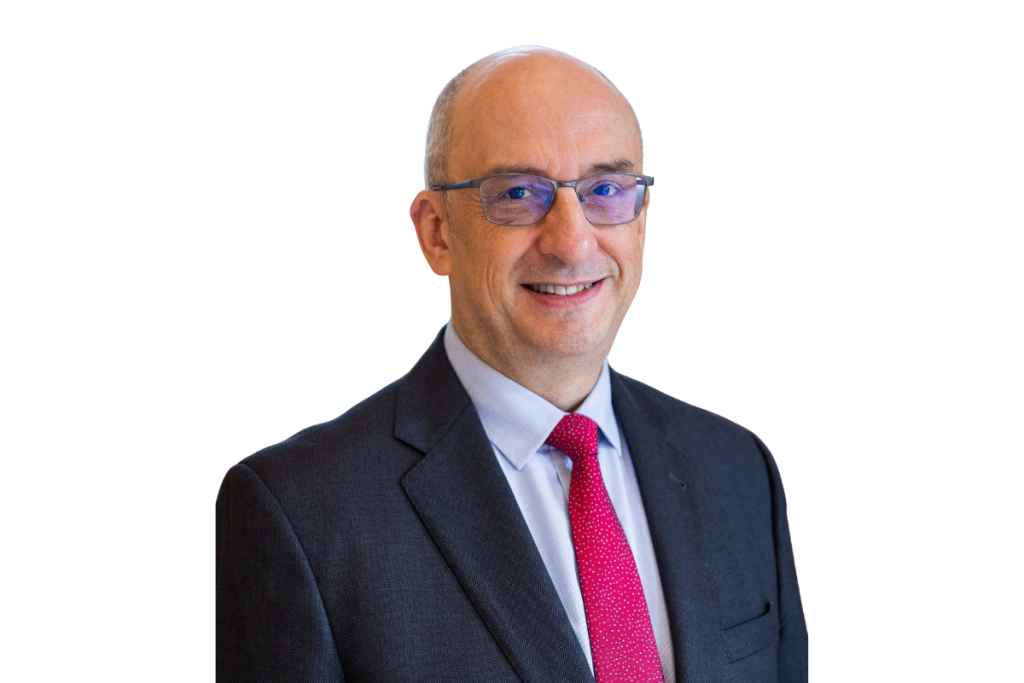
Minimally invasive procedures have become an integral component of contemporary cardiovascular care, significantly reducing the need for traditional open-heart surgery in many clinical scenarios.
Interventional cardiology, as a subspecialty, focuses on catheter-based techniques to diagnose and treat a range of cardiac conditions, with a particular emphasis on coronary artery disease, valvular pathologies and structural heart defects.
Prof. Dragoș Vinereanu, MD, PhD, FESC, FRCP, FAHA, is a well-known Romanian cardiologist and researcher, recognised for his expertise in cardiac imaging, heart failure and atrial fibrillation. He led over 40 clinical trials as a member of the International Steering Committee, published extensively in leading medical journals and contributed to the development of major cardiology guidelines.
This conference, led by Prof. Vinereanu, will address key interventional procedures, including Transcatheter Edge-to-Edge Repair (TEER) for mitral valve regurgitation and Transcatheter Aortic Valve Implantation (TAVI) for aortic stenosis. It will also cover the percutaneous closure of intracardiac defects, such as Patent Foramen Ovale (PFO) and Atrial Septal Defect (ASD), highlighting their impact on patient management and the rising standards of care in the field.
By addressing current practices, procedural indications and emerging trends, this conference will explore the evolving role of interventional cardiology.
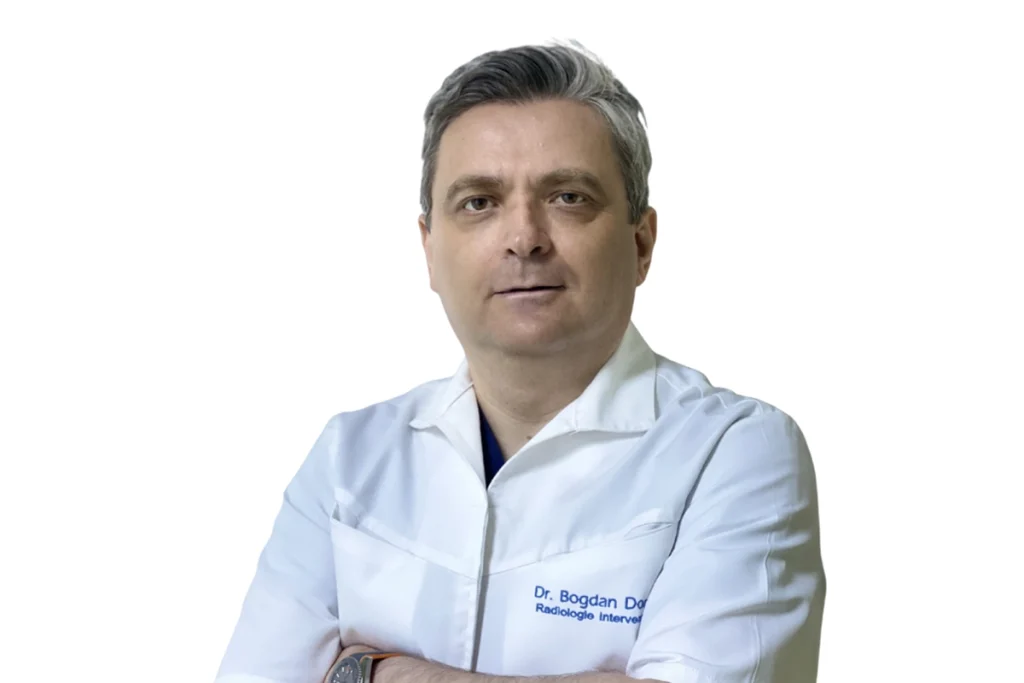
Interventional radiology is a medical specialty that utilises imaging techniques, including ultrasound, CT, MRI and fluoroscopy, to guide minimally invasive procedures within the body. It is applied in a variety of situations, from blocking blood flow to tumours and repairing vascular malformations to stabilising vertebral fractures and delivering treatment directly to targeted areas.
One of its most impactful applications is in the management of acute stroke. Endovascular treatment, performed by interventional radiologists, can restore blood flow in blocked brain arteries, significantly improving the chances of recovery when performed within the right time window.
Bogdan Dorobăț, MD, PhD, is one of Romania’s leading experts in interventional radiology and head of the Angiography and Endovascular Therapy Unit at the University Emergency Hospital Bucharest. He is internationally recognised for his work in minimally invasive treatment of acute stroke, diagnostic punctures and interventional drainage.
Led by Dr. Dorobăț, this conference will highlight the importance of interventional radiology in complex medical scenarios, with a special focus on acute stroke treatment, where every minute matters.

When the gut speaks, the brain listens. Explore the fascinating connection between the microbiome and mental health in our conference, led by Assoc. Prof. Grațiela Grădișteanu. You have the chance to discover how the gut-brain axis shapes our emotions and behavior and how it affects stress levels. It is no longer a secret that the microbiome contributes to the onset of metabolic disorders, anxiety and even depression. The conference will provide innovative perspectives for nutrition, personalized medicine and future therapies.
Assoc. Prof. Grațiela Grădișteanu is an expert in microbiome, immunology and molecular diagnostics, with over 100 scientific publications. She is the team leader at e-Bio-hub Research Center, Politehnica University of Bucharest and the coordinator of national and international projects focused on the role of microbiome in metabolic, infectious and cancer diseases.
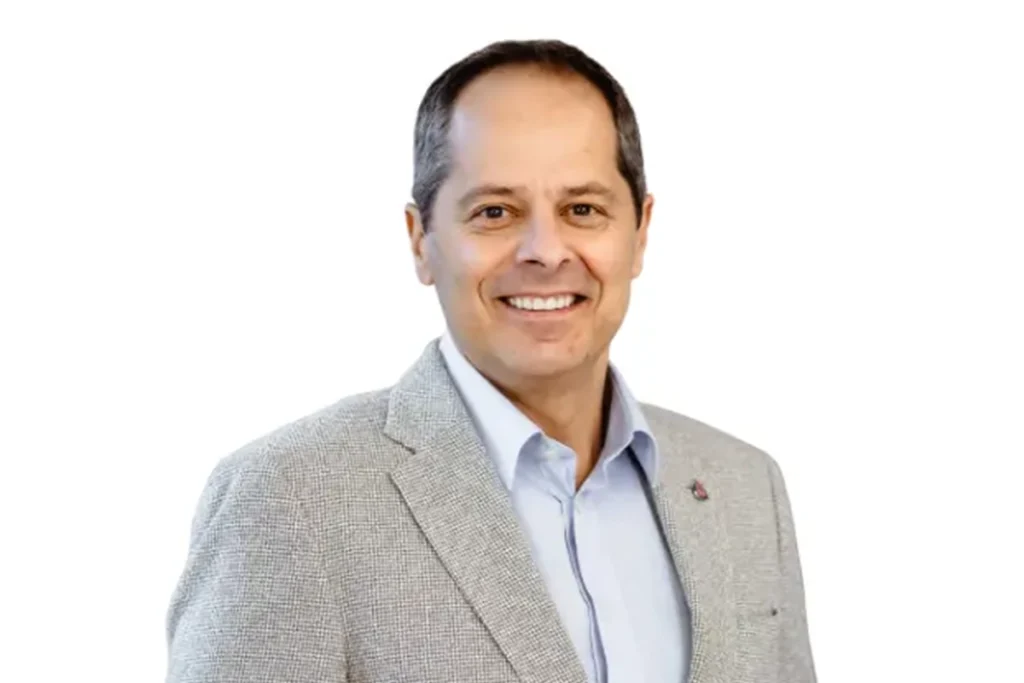
Pain is the most common reason patients seek medical care, yet it remains one of the most challenging symptoms to treat. Traditional management often relies on long-term medication or invasive surgery, but a new paradigm is emerging — one that focuses on precision, minimal risk, and lasting relief.
Interventional pain therapy uses image-guided, minimally invasive procedures to target the exact source of pain. From spinal interventions and nerve blocks to advanced techniques for chronic musculoskeletal and neuropathic pain, this field offers patients effective alternatives that restore function and quality of life without the burden of extensive surgery.
Ovidiu Palea, MD, FIPP, an internationally recognised expert in interventional pain management and minimally invasive spine surgery, will lead this keynote. With dual training in Romania and the United States, he heads Romania’s only Integrated Center for Interventional Pain Management and Minimally Invasive Spine Surgery at Pipera NORD Hospital — the only ESRA-accredited facility in Central and Eastern Europe. Founder of NORD Medical Group and President of the Romanian Association of Interventional Algology, Dr. Palea has dedicated his career to multidisciplinary education and advancing global standards in pain relief.
This conference will explore the role of interventional techniques in managing different types of acute and chronic pain, the latest innovations in spine interventions, and the future of pain therapy where precision prevails over invasion.
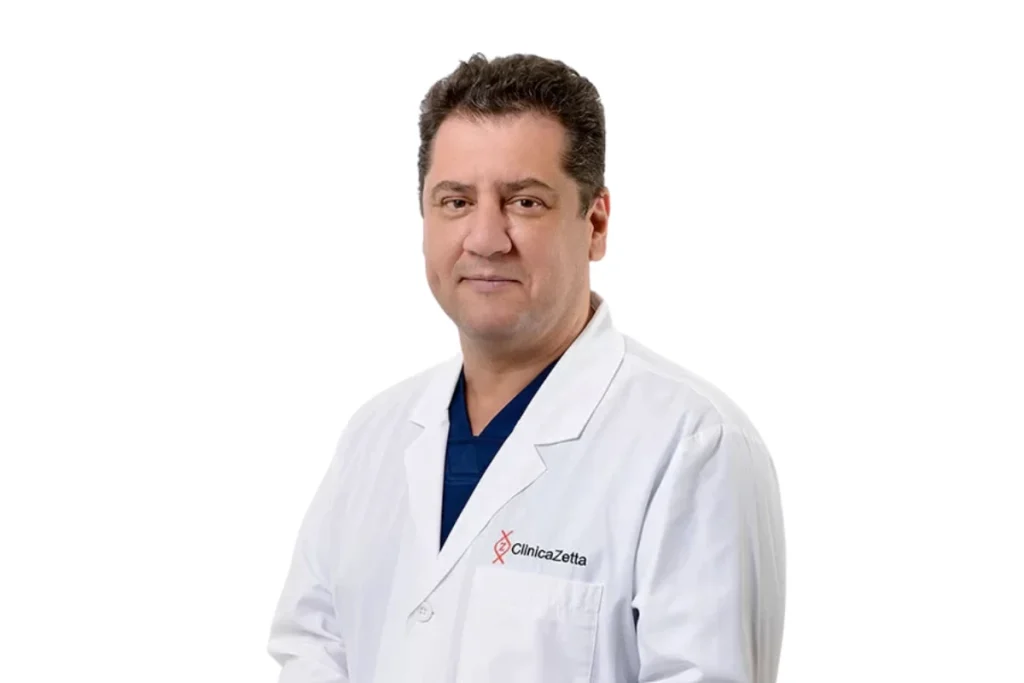
Explore the fascinating journey through microsurgery, highlighting its broad applications in areas such as head, limbs, breast, brachial plexus and lymphedema. Alongside Dragoș Zamfirescu, MD, PhD, you will learn clinical uses in post-traumatic reconstruction, where microsurgery restores both function and appearance.
The event will feature the Founder and Medical Director of Zetta Medical Center, Dragoș Zamfirescu, MD, PhD, one of Romania’s leading institutions in microsurgery and plastic surgery. With over 20 years of experience, he has performed complex interventions both nationally and internationally, including numerous reconstructions of peripheral nerves, hands and upper limbs, as well as advanced breast reconstruction after mastectomy using microsurgical free tissue transfer.
This conference offers an accessible overview of modern microsurgery while illustrating the complexity of real clinical cases.

What if art could heal and technology could amplify its power? This conference invites you on a journey through the delicate balance between creativity and science. From the stories of artists whose personal struggles and conditions shaped their genius, to the growing field of art therapy that transforms emotion into recovery, this exploration reveals how art has always been medicine for the soul.
Guided by Alin Lădaru, PhD, whose research bridges neuroscience, technology, and the healing potential of creativity, we will explore how innovation deepens our understanding of art’s restorative power. Now, with the rise of artificial intelligence, neurotech, and nanotechnology, creativity enters a new dimension, one where brushstrokes meet algorithms, and empathy meets innovation.
Discover how art and technology together are redefining what it means to heal, not only the body, but also the mind and spirit. In this evolving landscape, imagination becomes a bridge between human vulnerability and the boundless potential of science.